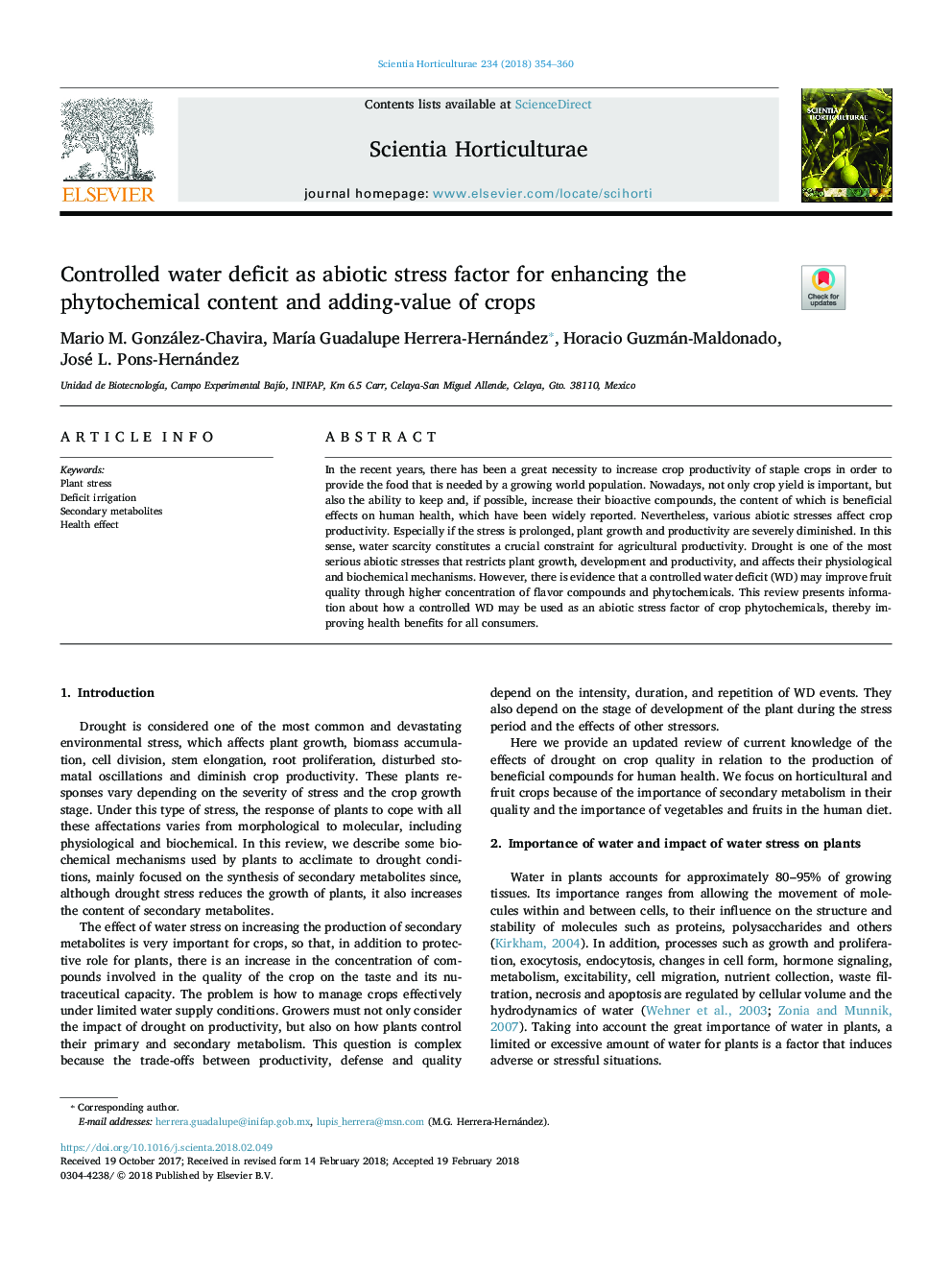| Article ID | Journal | Published Year | Pages | File Type |
|---|---|---|---|---|
| 8892792 | Scientia Horticulturae | 2018 | 7 Pages |
Abstract
In the recent years, there has been a great necessity to increase crop productivity of staple crops in order to provide the food that is needed by a growing world population. Nowadays, not only crop yield is important, but also the ability to keep and, if possible, increase their bioactive compounds, the content of which is beneficial effects on human health, which have been widely reported. Nevertheless, various abiotic stresses affect crop productivity. Especially if the stress is prolonged, plant growth and productivity are severely diminished. In this sense, water scarcity constitutes a crucial constraint for agricultural productivity. Drought is one of the most serious abiotic stresses that restricts plant growth, development and productivity, and affects their physiological and biochemical mechanisms. However, there is evidence that a controlled water deficit (WD) may improve fruit quality through higher concentration of flavor compounds and phytochemicals. This review presents information about how a controlled WD may be used as an abiotic stress factor of crop phytochemicals, thereby improving health benefits for all consumers.
Related Topics
Life Sciences
Agricultural and Biological Sciences
Horticulture
Authors
Mario M. González-Chavira, MarÃa Guadalupe Herrera-Hernández, Horacio Guzmán-Maldonado, José L. Pons-Hernández,
